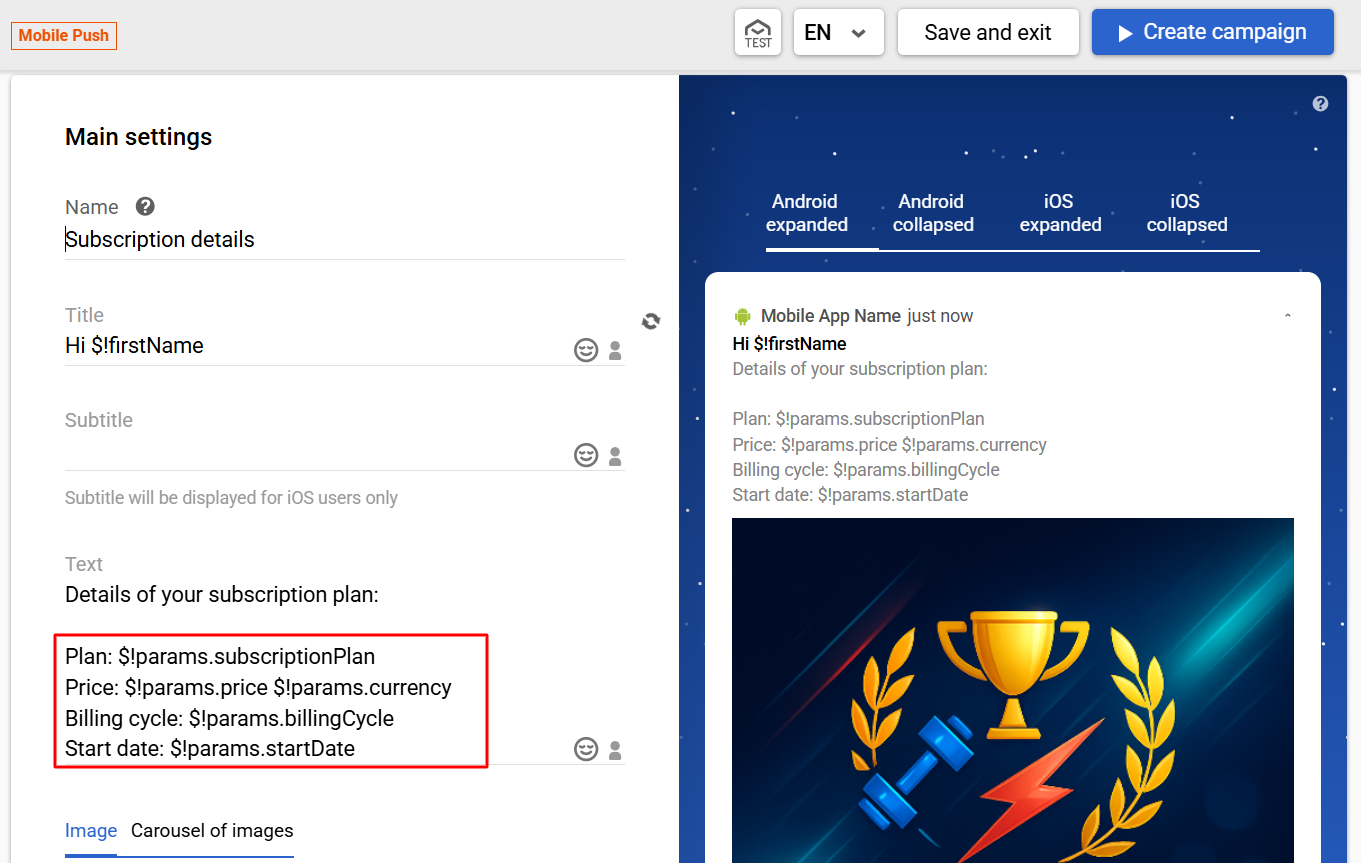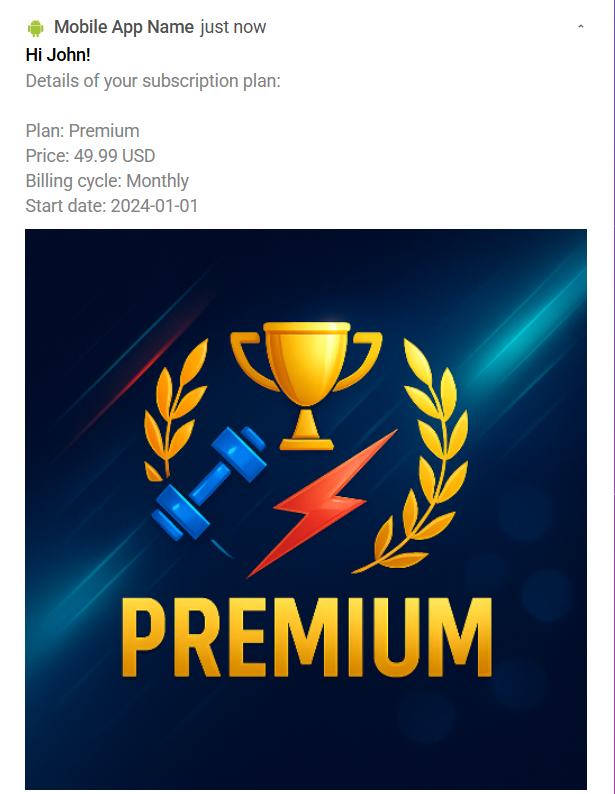Introduction to Velocity
Personalize your campaigns with Velocity variables
Apache Velocity is a software product consisting of several Java libraries. The product's main component is the Velocity Engine, a library that allows you to generate dynamic output content (images, links, text) based on message templates.
Velocity conditionals such as if/else, for, and foreach allow you to set flexible conditions for displaying content depending on the JSON object parameters. More about velocity variables’ types and functions to use in Reteno >
Velocity Engine could be used both in bulk campaigns and triggered campaigns.
Dynamic content in messages is used to substitute the personalized data to send to the user — for example, goods on a placed order, the username, or their personal promotional code.
Data for substitution in the message can be transmitted:
- From the user profile in the Reteno system
- From the external data sources
- From the event
No matter where you transfer data from, it enters the Reteno system in the same format: JSON object data with some parameters.
To substitute data from such object to the message, use Velocity variables. Variables are the type of reference that can refer to something defined in the JSON code. The more user data you have, the more dynamic variables you can use.
Referring to JSON object values via variables
JSON (JavaScript Object Notation) is a human-readable text data exchange format based on JavaScript. Easy to read by man and machine.
Formatting of a JSON object is set using curly braces { } containing the data with the key values. The pairs of key values are separated by a colon: {"key" : "value"}. Every pair of values is separated by a comma, so the middle section of the JSON object looks like this:
{
"key1": "value1",
"key2": "value2",
"key3": "value3"
}As an example, the object which is transmitted in the event by the smartsend API method containing two pairs of key values looks as follows:
{
"externalCustomerId": "a7c9f9b8-d3a2-401c-8b93-7f3d4f91bfa2",
"subscriptionPlan": "Premium",
"startDate": "2024-01-01T12:00:00Z",
"price": 49.99,
"currency": "USD",
"billingCycle": "Monthly"
}To display the transmitted values in a message, you have to use the velocity structure $!subscriptionPlan etc. in the message.

After data substitution when sending, the message will look as follows:

Depending on the task, the following variable formats can be used:
| Variable | Description | Notes |
|---|---|---|
$discount | If the variable does not exist, the literal text $discount is output | Not recommended for use in real campaigns. The format can be used in tests to make the absence of required data more noticeable |
$!discount | If the value is missing, nothing is rendered | It is recommended to accompany it with additional text so that in the absence of data the text looks more natural, for example: Your discount $!discount is waiting for you! |
${discount} | Braces unambiguously delimit the variable name from adjacent text | Typically used to separate percentages and currency, for example: Save ${discount}% today |
$!{discount} | Properly delimits the variable and suppresses missing values | If the value is missing, the user will see the text next to the closing bracket, for example: Save % on your next order |
${discount|$otherGift} | If the variable value is missing, a fallback value is inserted | The most optimal option is when the user sees alternative text if there is no value |
For more information on how to use velocity variables, see the articles below:
Updated 29 days ago
